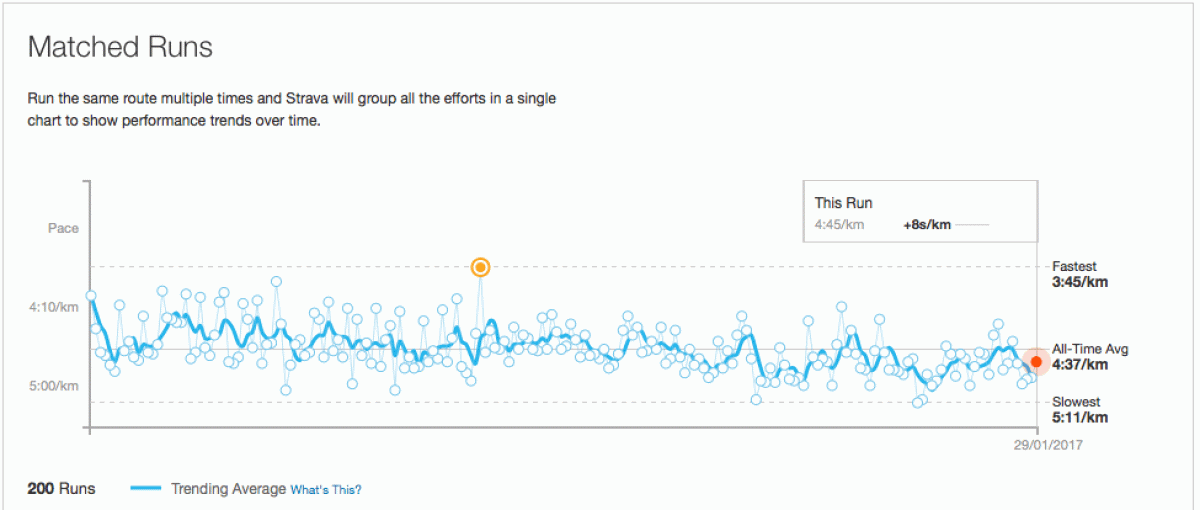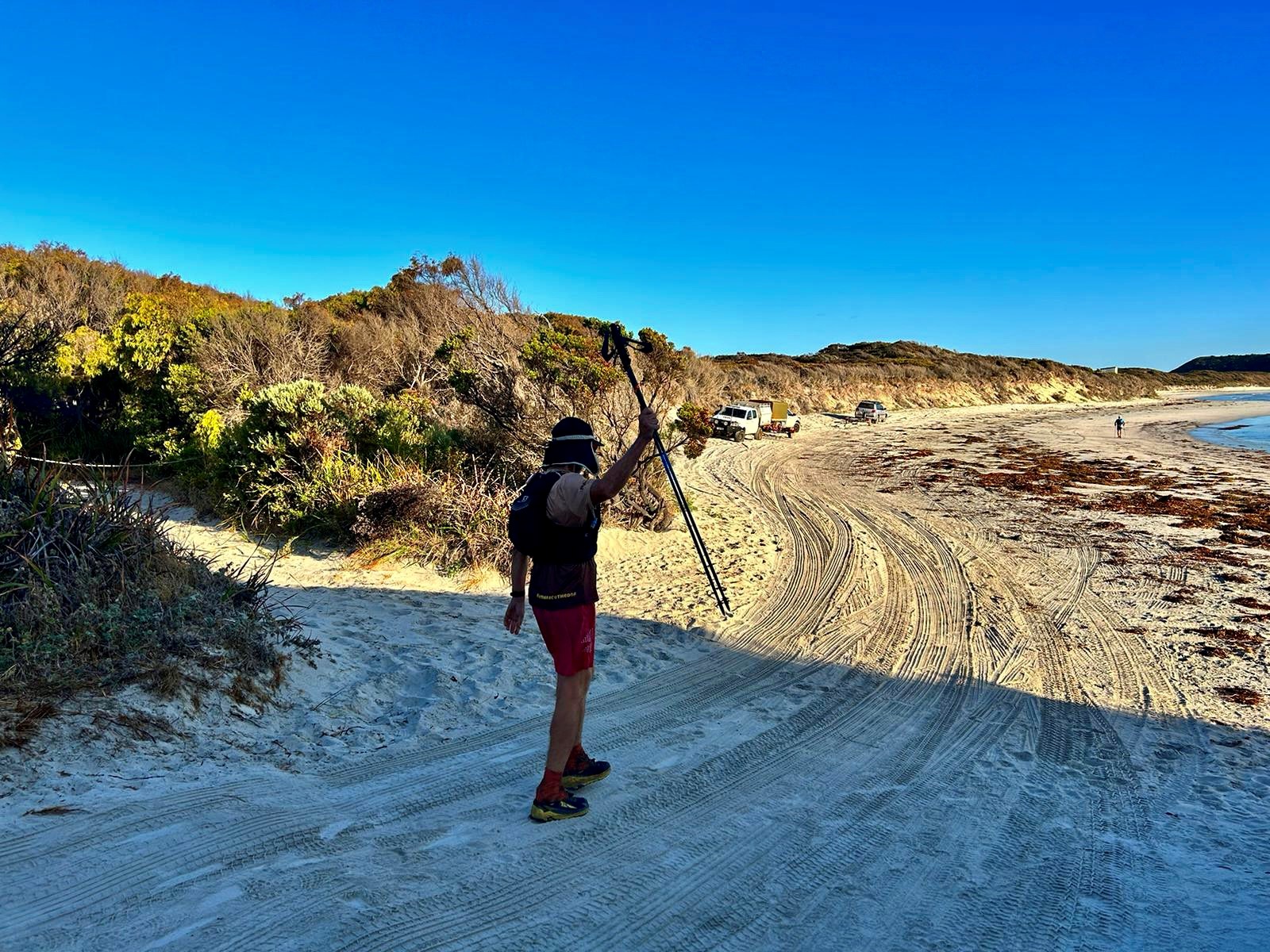Sometimes you need to slow down to speed up.

This training program yielded some good results but I sacrificed my top end speed as I wasn’t running any tempo or threshold runs, just lots of sub 4min/k’s. Raf from the Running Centre (http://therunningcentre.com.au ) picked me up on this on Strava ( http://www.strava.com ) and recommended I try a 10k threshold at least once a week, just to break the monotony of running the same pace for every run. I was surprised when I tried to add pace as I struggled and my 10k times weren’t that quicker than my ‘normal’ pace. Something was amiss and I was found out at the Bunbury Marathon in 2014 when I blew up after leading the race for the first 10k. I admit there was also some mental problems as I was defending my marathon title after winning (my only marathon victory) in 2013. I had gone out at my 10k pace truth be told and at 15k my race was finished. I met Raf afterwards, in the hotel spa of all places, and he could sense my disappointment of finishing 4th in a time of 2hrs54mins, when I aiming for a sub 2hr40min finish truth be told.
For the rest of 2014 I struggled on (Bunbury was in April) and although I managed 2hrs 46mins at the Perth Marathon I never managed to reach the heights I had reached in 2013. Something needed to change and in January 2015 I was taken under Raf’s wings and given a program for the Perth marathon, my first training program at the ripe old age of 48. The first 3-4 months were harder than I expected as I really struggled with the top end pace work. The steady and long runs were do able but my top end pace just wasn’t there. Over time I did improve of course thanks to Raf’s coaching skills but all the good work was undone by a slight stress fracture just before the Perth marathon. (Picked up on the last steady run , a week out ! Always the way ?) I ran a 2hrs49mins, 9th place finish, but Raf had me in better condition than that but the injury played on my mind.
After Perth Raf gave me another training plan for the City to Surf marathon in August and I stuck to this one and ran a good time for a 4th place but more importantly a strong race and strong finish. My first good marathon for over a year. Although I enjoyed working with Raf I was time constrained by my family, work, life etc, the runners quandary. I decided for 2016 to take what Raf had taught me and adapt my training accordingly.
I think the most important thing Raf taught me was there is no such thing as ‘junk miles‘, every kilometre you run is doing you some good, at whatever pace. This to me was a ‘lightning bolt’ moment as I was so use to running every run as a tempo and finishing with nothing left in the tank. I just didn’t run slow, ever ! The first few runs I ran at a slow pace I was questioned on Stava by my running friends as to whether I was injured, such was the disbelieve that I could run anything bar sub 4min/k’s. I must admit the first few times it felt alien and I had to really work hard to run slow. Raf introduced me to the Maffetone training method ( https://philmaffetone.com , I have mentioned this a few times on the blog.) and I was off building my foundation for the success which was to come in 2016.
Fast forward to the Perth marathon of 2016 and I just about ran a negative split and was 2 minutes quicker than the previous year. (You can read the post regarding Perth 2016 on my new website http://www.fitfastfifty.com ; http://fitfastfifty.com/index.php/2017/01/25/perth-marathon-2016/ ) After Perth I added the double days and the PB’s came tumbling down and my confidence returned in spades. I managed to drop my 5k, 10k, 16k,21k and 50k PB times and by quite a chunk each time. So how did I do it ? Basically I slowed down, ran more and raced more. It really was (is) that simple. Taking what Raf taught me, reading Matt Fitzgerald’s books and a sprinkling of Maffetone added to the mix and hey presto.
Thanks to Strava (in Strava we trust) you can see how this slowing down is trending on my 10k go-to run of choice. (see below) Over time you can clearly see my running average pace for the 10k is slowing but in the same period I have ran probably 10 PB’s, so there is a correlation of slowing down to speeding up when you put a bib on your chest. Of course I have added distance and more time on my feet into the equation, combined with racing more but the slowing down is a factor.
It really is a case of slowing down to speed up.

About The Author
bigkevmatthews@gmail.com
A running tragic.
Related Posts
How mental is an ultra marathon ?
With Herdy’s backyard ultra 2025 kicking off in a few days I thought it…
Herdy’s backyard ultra , number 5 in a row for Herdy’s and BYU number 12 … why wouldn’t you ?
In 2021 I ran 47 laps at the inaugural Herdy’s (Frontyard, as it’s…
